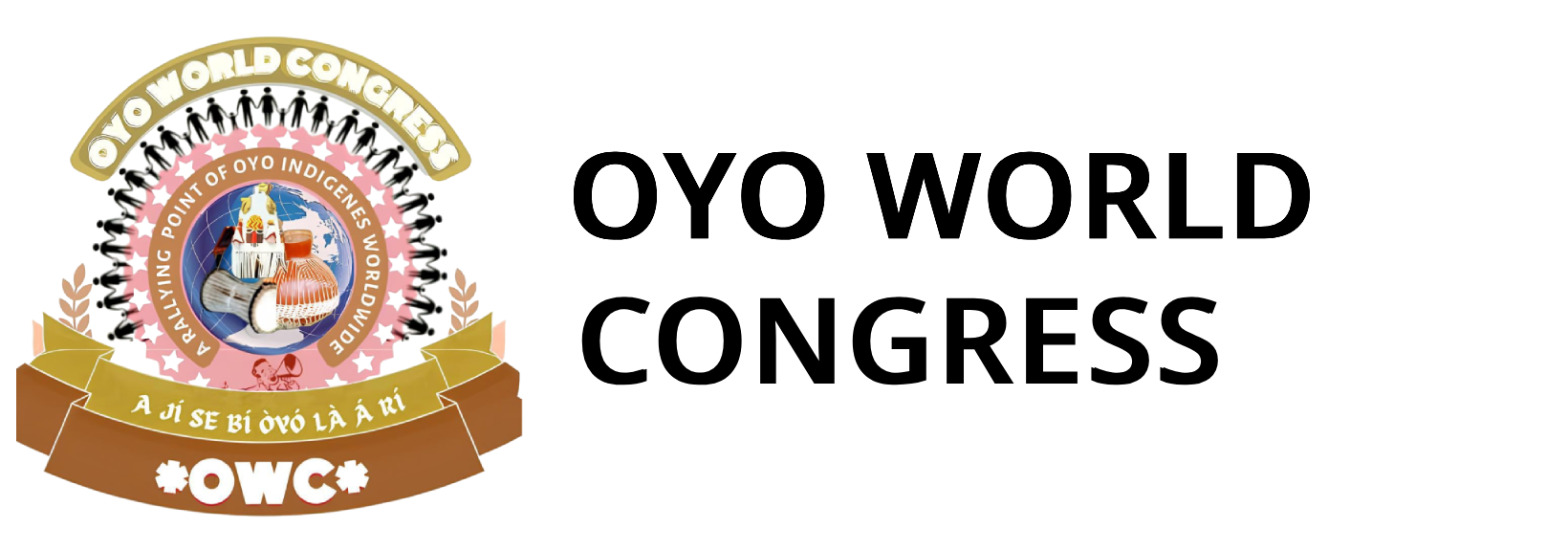History of Oyo World Congress
The Oyo World Congress (OWC) was conceived as a response to the need for unity among indigenes of Oyo State, Nigeria. For decades, Oyo people known for their deep cultural roots, entrepreneurial spirit, and intellectual heritage have thrived both at home and in the diaspora. Yet, the absence of a global platform to harness this collective strength was evident. The Congress emerged to fill that gap.
The OWC brings together Oyo indigenes from every walk of life professionals, academics, artisans, business leaders, cultural custodians, and youths into a single community dedicated to the advancement of Oyo State and the preservation of its traditions. Today, the Congress serves as the voice of Oyo indigenes worldwide, offering opportunities to connect, collaborate, and contribute towards common goals.
The Oyo Kingdom: A Glorious Past
The story of Oyo is inseparable from the history of the Yoruba people. The Oyo Empire rose to prominence in the 15th century and became one of the most sophisticated and powerful kingdoms in West Africa. Its capital, Old Oyo (Oyo-Ile), was a thriving city-state renowned for its rich traditions, complex political system, and formidable military.
At the head of the kingdom was the Alaafin of Oyo, a revered monarch considered the custodian of Yoruba authority and tradition. The Alaafin’s power was balanced by the Oyo Mesi, a council of seven kingmakers and chiefs, and the Ogboni society, a respected group of elders and spiritual leaders. This system of checks and balances was unique in African governance and allowed Oyo to thrive for centuries.
Oyo’s military strength was unmatched, especially its cavalry, which gave the empire dominance across the savannah. Through military campaigns, trade, and diplomacy, Oyo extended its influence over other Yoruba kingdoms and neighboring regions. The empire’s wealth was built on trade in goods such as kola nuts, textiles, horses, and later, contact with European merchants along the coast.
The empire eventually declined in the 19th century due to internal conflicts, invasions, and the rise of other powers. Yet, the legacy of the Oyo Kingdom endures in its culture, governance traditions, and the pride of its people.
Oyo State in Modern Nigeria
Oyo State was created in 1976 following the division of the old Western State of Nigeria. With Ibadan as its capital, Oyo State became a major hub of culture, education, and politics. Ibadan itself holds a special place in Nigeria’s history as the largest city in West Africa and a center of commerce and learning.
Oyo State is blessed with historical towns such as Oyo, Ogbomoso, Saki, and Iseyin, each contributing to the state’s rich identity. It is home to Nigeria’s premier university, the University of Ibadan, as well as several research institutes, making it the intellectual heartbeat of the nation.
Culturally, Oyo State remains deeply rooted in Yoruba traditions from the annual festivals, colorful masquerades, and chieftaincy titles to music, dance, and storytelling. The Alaafin of Oyo continues to be a symbolic and cultural figure of great importance, representing the historical continuity of the Oyo Kingdom.
Why Oyo World Congress Was Formed
In an age of globalization, many Oyo indigenes live and work far beyond the boundaries of the state and Nigeria. The Oyo World Congress was born out of the need to create a unifying platform that connects all Oyo sons and daughters regardless of their location. It is both a cultural and developmental movement rooted in tradition but focused on the future.
The Congress provides opportunities for dialogue, collaboration, and empowerment. It organizes congresses, seminars, and cultural events, while also supporting initiatives in education, healthcare, youth development, and community building.
At its core, the OWC is about unity: bringing together indigenes of Oyo State to harness their collective resources, talents, and expertise for the good of all.
The Mission of Oyo World Congress
Our mission is simple yet powerful: to unite Oyo indigenes worldwide, preserve our heritage, and drive progress in every community where Oyo people are found.
Through cultural preservation, youth mentorship, socio-economic projects, and international partnerships, the Congress strives to make Oyo a model of unity and development in Nigeria and beyond. The Congress believes that by honoring our past and investing in our future, we can build a stronger and more prosperous Oyo for generations to come.
Looking Ahead
The Oyo World Congress is not only about remembering where we came from; it is about charting the course for where we are going. As the challenges of the modern world grow, the Congress seeks to equip Oyo indigenes with the skills, knowledge, and opportunities to thrive.
Together, we stand as custodians of a great legacy and as architects of a brighter tomorrow. The story of Oyo continues, and the Congress is the bridge between the glorious past and the promising future.
